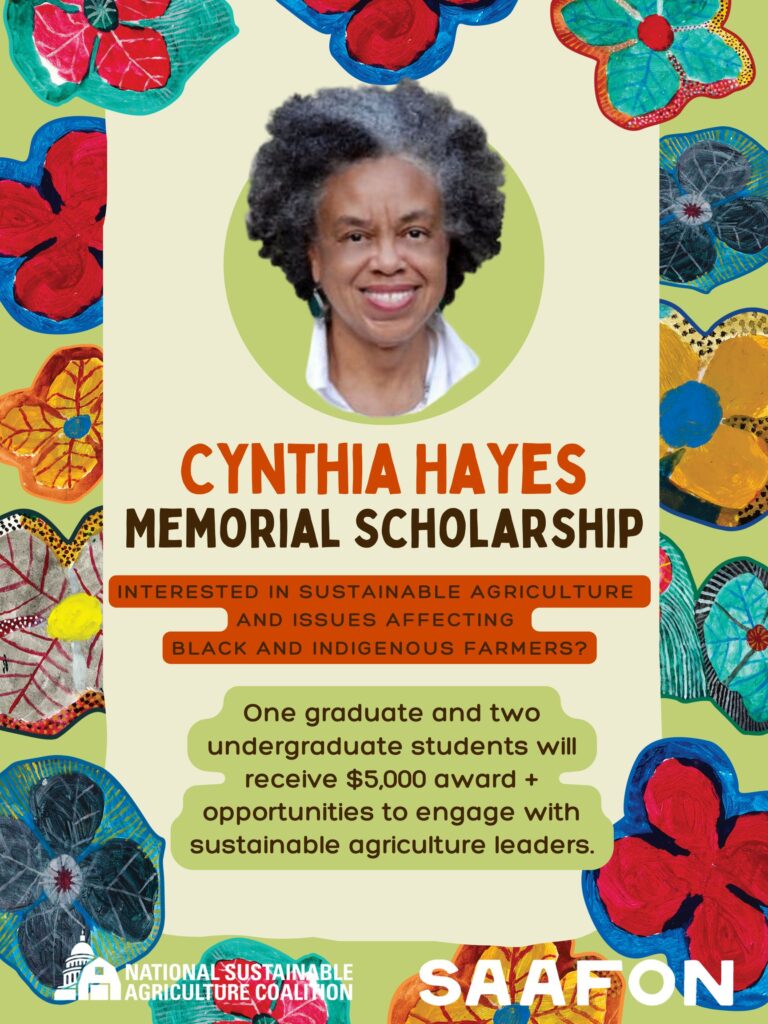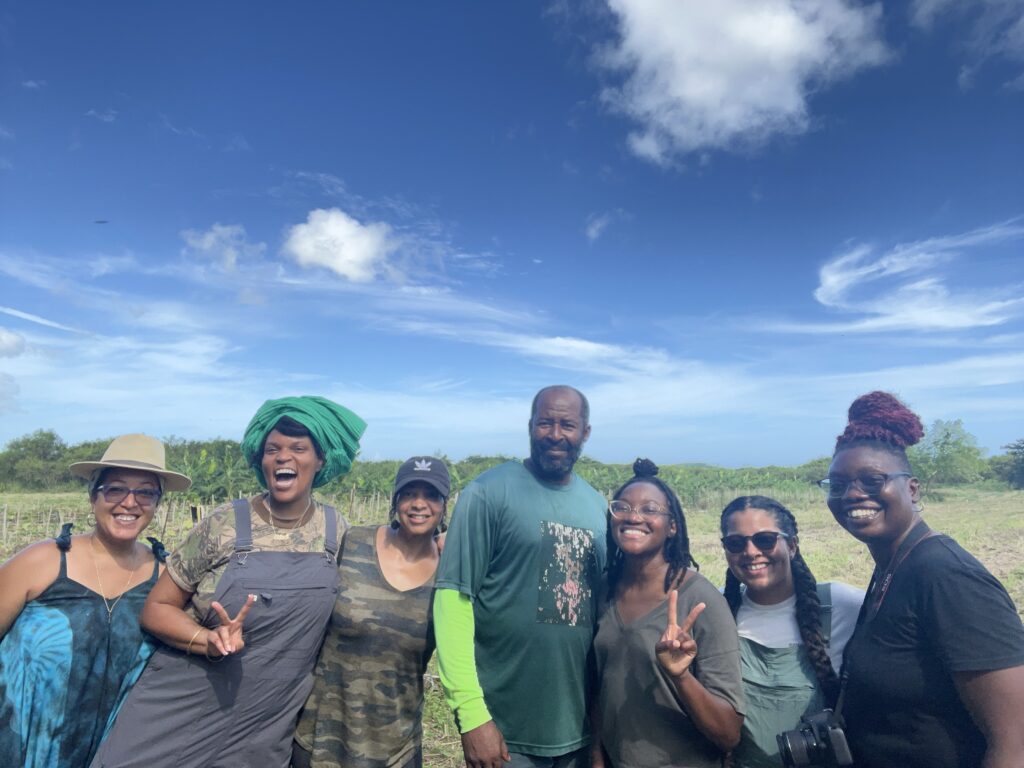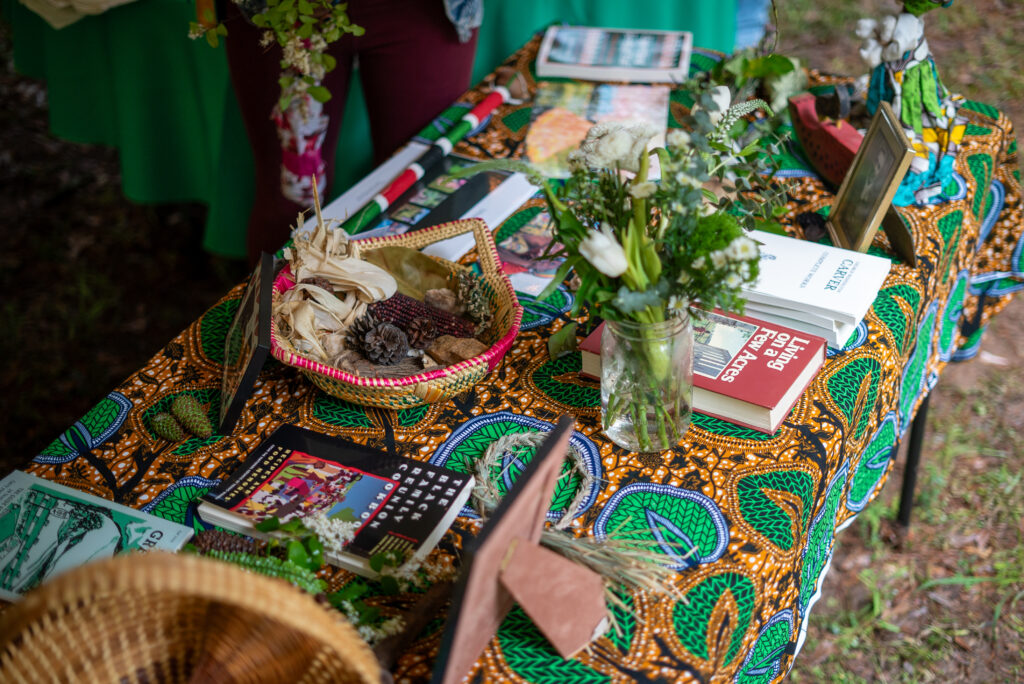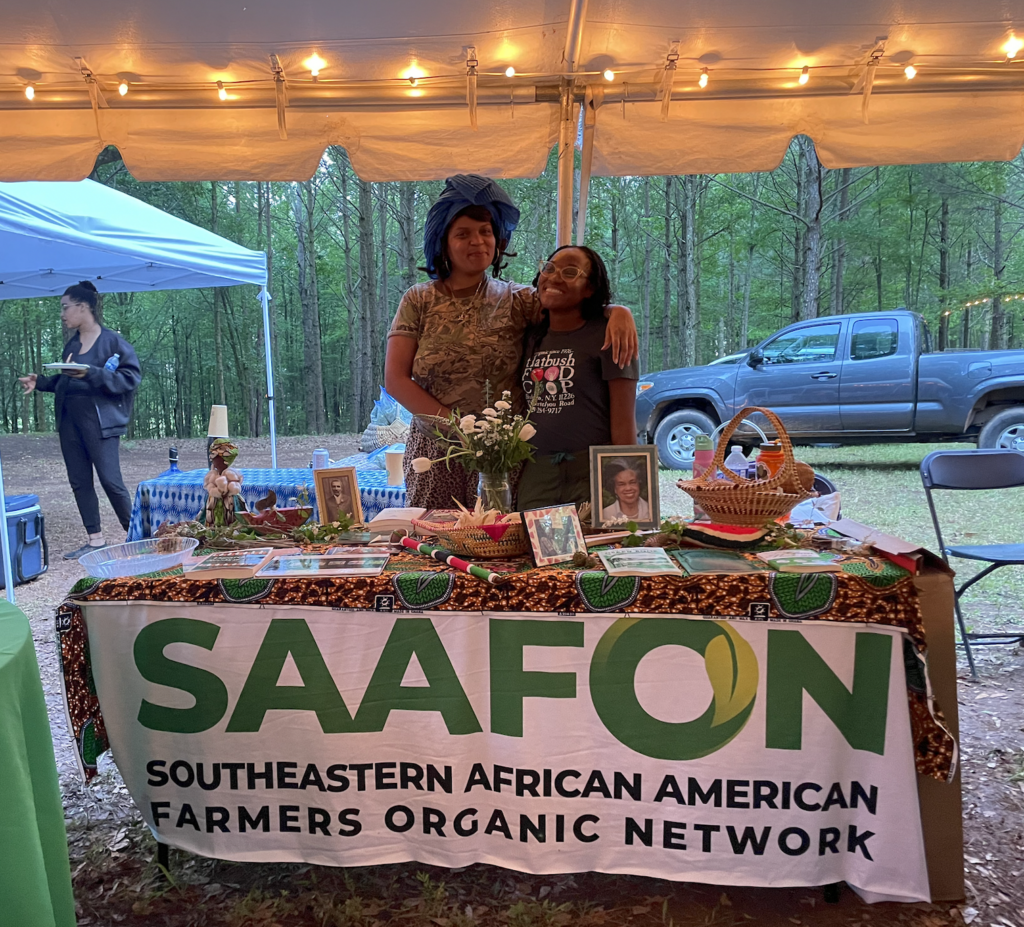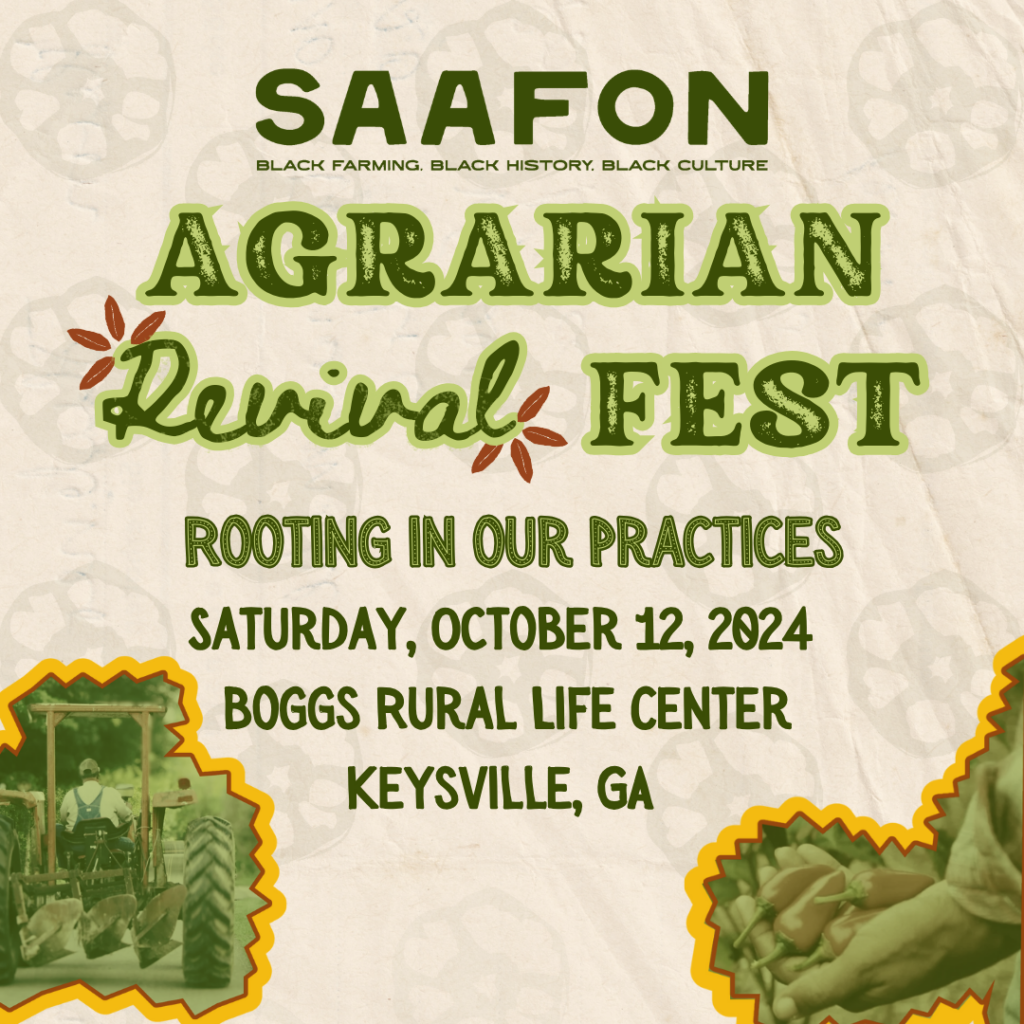
This year, SAAFON will be hosting our first Watermelon Convergence, in partnership with the Mississippi Association of Cooperatives and Black Dirt Farm Collective, with funding support from The Southern Black Farmer Community-Led Fund (linked). The objective is to dive into all things watermelon – seeds, cultural production practices, logistics and markets, pest-mitigation and soil relationships, with a small cadre of farmer and farmer-organizers at Indian Springs Farmer Association Co-op. Over the course of 3 days attendees will share meals, engage in collective work to support the co-op preparing for Summer holiday market demand, identify existing supply chain infrastructure, share market contract opportunities, document stories and weave new narratives about how Black farmers relate to watermelon.
The story of watermelon within the Black agrarian experience is epochal, stretching far beyond the Americas. For years, scholars believed the melon’s origins lay in South Africa, linked to the citron melon. Yet, recent genetic studies reveal that the domesticated watermelon of North America is most closely related to the Kordofan Melon of Sudan, nestled in the heart of Northeast Africa. Across West Africa, other melons share a deep kinship with the fruit we now recognize as watermelon.
Regardless of the specifics, one truth remains indisputable: the watermelon is, without question, African. Its seeds knew African soil long before the Atlantic bore witness to kidnapped African people. Long before Europe emerged from the depths of the Dark Ages, before the Mongols knew the rise of the Khan. When this revolutionary crop took root in America, it fashioned a new identity, bearing characteristics found nowhere else in the world. The earliest wild watermelons of Africa were bitter, watery, and bland. Yet, through centuries of Black agricultural expertise, both during and after slavery, the fruit was refined—its sweetness deepened, its flesh turned redder, and its succulence amplified.
This transformation was not by chance. Attentive care for the soil, inherited knowledge of irrigation, and generations-old cultivation techniques—all rooted in African traditions—played a pivotal role in making the watermelon of the Americas richer and juicier. Even the very varieties we revere today are shaped by Black hands. Take the Georgia Rattlesnake, cultivated by Black farmers in South Carolina and Georgia as early as the 1830s. Though still popular today, this heirloom once reigned as the most cultivated watermelon in the South. Then there’s the once-endangered Moon and Stars watermelon, which held its prominence in the early 1900s but, by the 1980s, was brought back from obscurity by Black farmers across Mississippi, Georgia, Alabama, and the Carolinas.
In the years following the Civil War, during the Post-Emancipation Farming Boom, Black farmers arguably became the nation’s largest producers of watermelon. More than just a crop, it was a symbol of liberation—one of the first cash crops cultivated and sold by newly freed Black agrarians. Watermelon was sold at bustling markets, along dirt roads, and even directly to white business owners who sought out the sweetest, juiciest melons grown in the South. It was more than sustenance—it was economic power, a means of independence for a people forging their way in an America still unwilling to see them free.
Yet, the Black agrarian stronghold on watermelon could not withstand the relentless assault of systemic racism. Discriminatory financial institutions, racially targeted government policies, and the rise of industrialized agriculture all worked to dismantle Black landownership. At its peak in 1910, Black farmers owned a staggering 16 million acres of land, much of it devoted to crops like watermelon. But by 1997, over 90% of that land had been lost—stolen through legal loopholes, denied access to loans, and driven into foreclosure by discriminatory policies. Today, corporate interests dominate the watermelon industry, but its Black agrarian roots remain undeniable.
Like country music, the blues, and gospel, watermelon is another Black gift to American history—a crop nurtured, perfected, and carried forward by the hands of Black farmers. And now, Black agrarianism is rising once more, growing at a rate unseen since the early 1900s. With its ancestral significance, the watermelon is reclaiming its rightful place—not just as a fruit, but as a symbol of Black independence, resilience, and cultural power.


